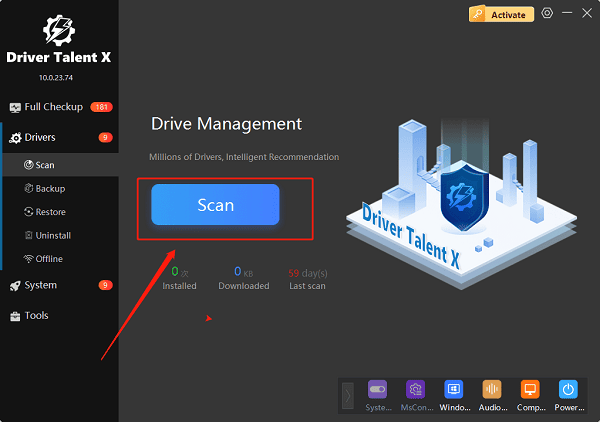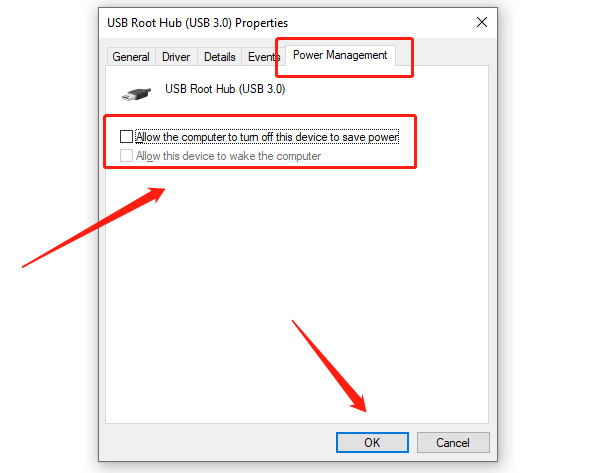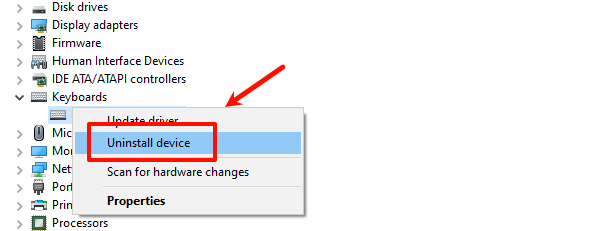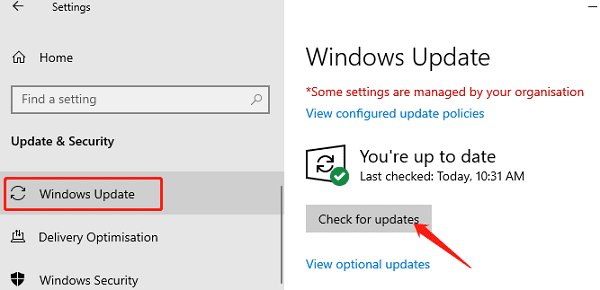The Corsair K57 is a gaming keyboard that supports wireless and wired connections along with RGB backlighting. Some users may encounter the issue of "Corsair K57 Keyboard Not Recognized" on Windows.
This can manifest as the keyboard being unresponsive, not showing in Device Manager, no lighting, or driver errors. This article analyzes the causes and provides effective solutions to help you restore the keyboard's normal functionality.
I. Symptoms of Corsair K57 Not Being Recognized
No response when plugging in the keyboard
iCUE fails to detect the Corsair K57
No lighting, even though power is supplied
Intermittent disconnection
Not shown or marked with a yellow exclamation mark in Device Manager
II. Common Causes of the Corsair K57 Recognition Issue
Insufficient power supply or damaged USB port
Missing or corrupted keyboard drivers
Faulty or uninstalled iCUE software
Outdated or corrupted firmware
Hardware failure in the keyboard itself
Compatibility issues caused by a Windows update
III. Solutions for Fixing Corsair K57 Not Recognized
Method 1: Update Keyboard Driver
Driver issues are one of the primary reasons why the Corsair K57 isn't recognized. It's recommend to use Driver Talent X, which can automatically identify, download, and install the best drivers for your device with ease and high efficiency.
Click the Download button to get the latest version of Driver Talent X, install and open the software.
Under the Drivers tab, click "Scan". The software will detect the status of all your drivers.

Locate the keyboard driver in the scan results and click "Upgrade".
Restart your computer to ensure the new driver takes effect.
Method 2: Switch USB Port
Plug the keyboard into a rear USB 2.0 or 3.0 port on the motherboard. Avoid using USB hubs.
If using wireless mode, ensure the battery is charged and press the wireless pairing button on the keyboard.
Method 3: Disable USB Power Saving
Open Device Manager and expand "Universal Serial Bus controllers".
Right-click on "USB Root Hub" or similar items and choose "Properties".
Go to the "Power Management" tab.
Uncheck "Allow the computer to turn off this device to save power".

Apply the changes and restart your system.
Method 4: Reinstall Keyboard Driver
Right-click Start and open Device Manager.
Expand the Keyboards category, right-click the K57 device, and choose "Uninstall device".

Unplug the keyboard and plug it back in to let Windows automatically reinstall the driver.
Method 5: Perform a Hard Reset
Unplug the keyboard.
Hold down the "ESC" key.
While holding ESC, plug the keyboard back in and continue holding for 5 seconds.
Release the key and check if the keyboard is recognized.
Method 6: Check for Windows Updates
Click the Start button and go to Settings > Update & Security.
Under "Windows Update", click "Check for updates".

If updates are found, click "Download and install". Windows will install the latest drivers.
Restart your PC after the updates are installed.
Method 7: Update Firmware via iCUE
Go to the Corsair official website and download iCUE.
Install and launch the software.
Check if the K57 is detected.
If detected, check for any available firmware updates.
Perform the firmware update and restart your computer.
IV. Additional Tips and Precautions
Disable Fast Startup: Sometimes fast startup can cause devices to load improperly. Path: Control Panel > Power Options > Choose what the power buttons do > Change settings that are currently unavailable > Uncheck "Turn on fast startup".
Test on another computer: This can help determine if the keyboard itself is defective.
V. Frequently Asked Questions (FAQ)
Q1: iCUE doesn't detect my keyboard. What should I do?
Make sure iCUE is up to date, check the USB connection, and try reinstalling iCUE or resetting the keyboard.
Q2: Can I use the K57 without iCUE?
Yes, basic functions work without it. But for lighting and macros, iCUE is needed.
Q3: Does the K57 work on Mac or Linux?
It supports basic typing, but advanced features only work on Windows with iCUE.
When your Corsair K57 keyboard is not recognized, don't panic. Most issues can be resolved by checking the connection, updating drivers, and using iCUE.
If none of the above methods work, it is advisable to contact Corsair support or consider warranty replacement. Keeping your system updated and avoiding low-quality USB extension cables can also help prevent future issues.
